Boundary Bend boss Rob McGavin has trodden a path from hardship to horticulture visionary.
ROB McGavin describes himself as “just a farmer” but his uncompromising commitment to quality and his entrepreneurial mindset tell a different story. One that has helped transform our olive oil industry and changed the way Australians cook.
McGavin and business partner Paul Riordan run Boundary Bend Limited, Australia’s largest vertically integrated olive company and owner of the internationally award-winning Cobram Estate brand.
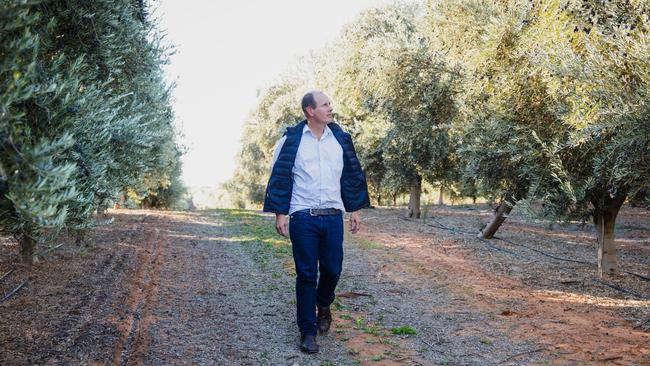
Founded in 1998, the company has 6530 hectares of irrigated olive groves and 2.4 million trees across seven sites in Victoria, producing about 13.5 million litres of extra virgin olive oil every year and turning over more than $135 million. With 120 employees in Australia, BBL also has groves in California, producing extra virgin olive oil for the US market.
“We never set out to be anything but farmers,” says McGavin, who is now chief executive and executive chairman. “We didn’t know how to market anything. We just said, let’s make the best quality olive oil we can and get it out there for the cheapest possible price.”
Tick. Not only is extra virgin olive oil a pantry staple in kitchens across the country, but Cobram Estate has put Australia’s olive oil industry on the world stage as a first-class producer, consistently beating European heavyweights at the biggest and most prestigious international contests.
We never set out to be anything but farmers
“Cobram Estate stands out as one of the premier orchard-to-plate models in Australia, if not the world,” says Paul Thompson, managing director and CEO of Australia’s largest nut and health food company, Select Harvests. “Whether it’s the mechanical harvester they use or the unique pourer that pops up when you open the bottle, the innovation they show right across the business sets them apart.”
Confident, charismatic and down to earth, McGavin doesn’t shy away from the big issues. He is at the front of the water battle for irrigators; fighting giant food companies’ attempt to take over the Federal Government’s health star rating to the detriment of consumers; and on the board of educational institutions. He lives near Geelong with his wife, Kate, and their three sons, Robbie, 17, Lachie, 15, and Jock, 13.
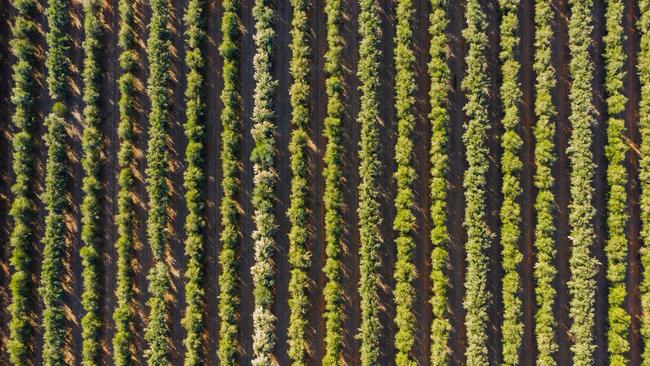
HUMBLE BEGINNING
McGAVIN grew up on a remote sheep and cattle farm southwest of Barcaldine, Queensland. He and his siblings, older sister Sue and younger brother Tim, tuned in to School of the Air on a two-way radio for half an hour every day then worked on the farm. When he was eight, McGavin lost his mother, Muriel, to breast cancer, leaving his dad, Bob, with three children aged under 10. She was 39.
“I think my mother’s death had a profound impact on who I became,” he says. “Dad was a true salt-of-the-earth bushie who had left school by Grade 6. He didn’t value education and he didn’t like educated people. But he did believe in working really hard.
“We never went on holidays or had nice things, and I suppose I felt like we were second-best. Somewhere in my upbringing I formed a deep desire to do well. I was driven to live a different kind of life.” When they were old enough, the children went to boarding schools in Brisbane.
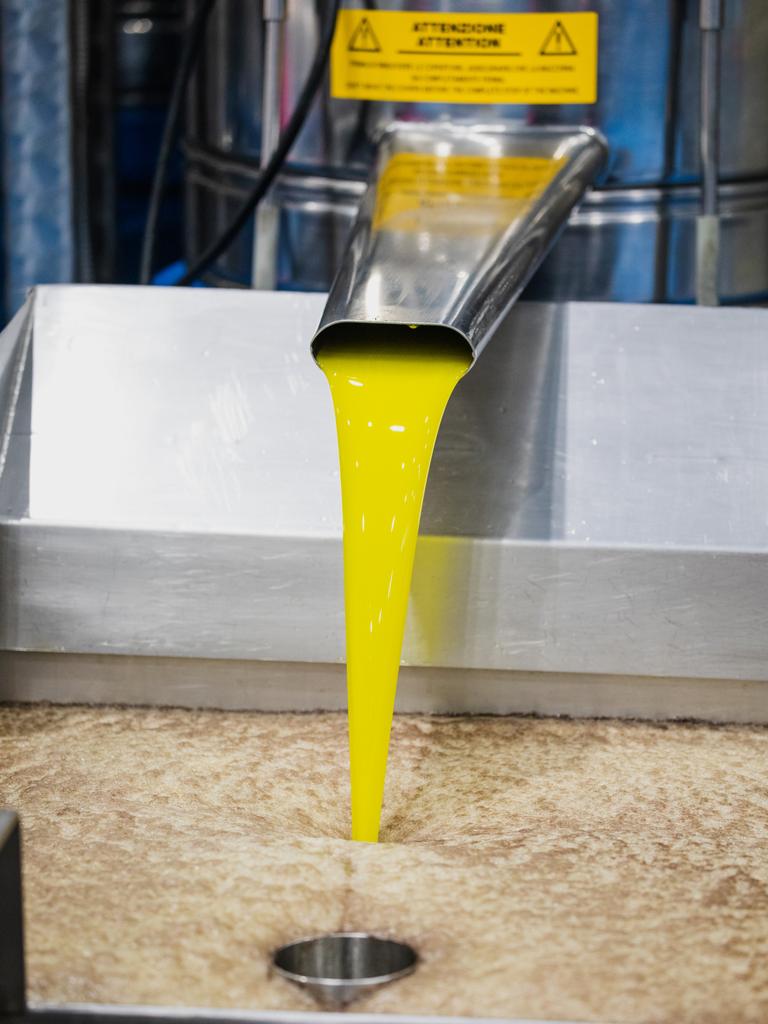
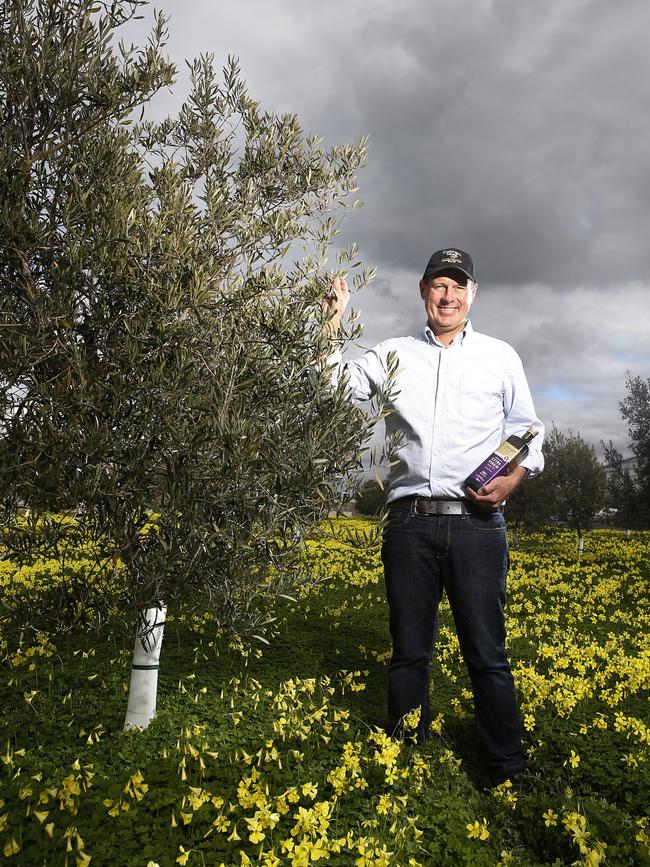
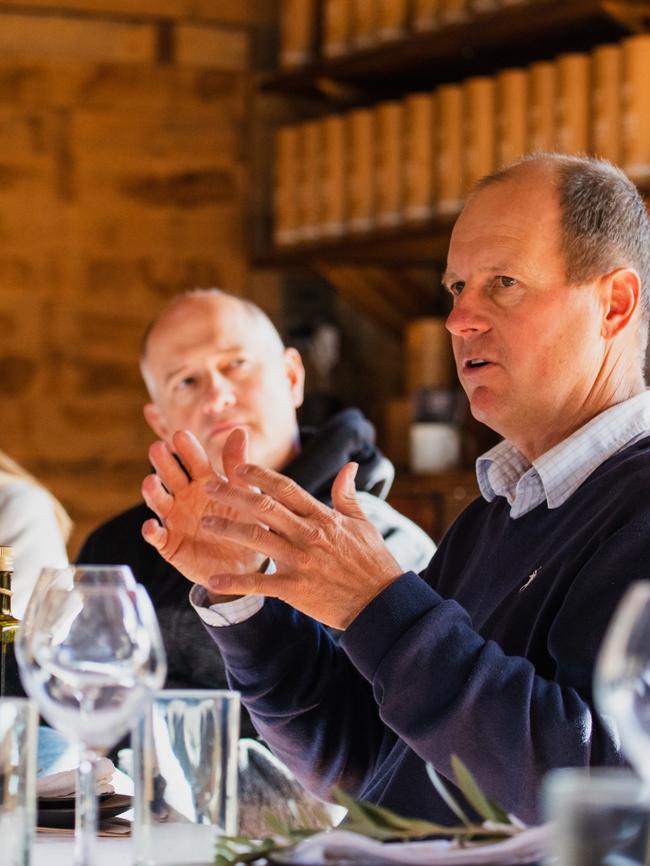
“It would have been very hard for Dad to send us away, but I’m glad he did,” McGavin says. After finishing high school, he returned to work for his dad for a year before heading to the Kimberley, Western Australia. For the next five years he worked as a ringer on cattle stations, mustering, fencing, breaking in horses and shearing sheep.
It was around this time that he met his future wife, Kate Muller, while playing rugby in Muttaburra, Queensland. She was 18 and he was 22 and they put their relationship on hold while Kate went to university in Armidale, NSW. It wasn’t until he enrolled in an agribusiness administration course at Marcus Oldham Agricultural College in Geelong at age 23 that McGavin discovered his entrepreneurial leanings.
MORE AGJOURNAL:
FARMERS TURN FOOD WASTE INTO OPPORTUNITY
AUSSIE CONSUMERS MUST STEP UP FOR DAIRY INDUSTRY
MAJOR AGRICULTURAL PLAYERS OFFLOAD PROPERTY
“Before Marcus Oldham I’d never turned on a computer. I didn’t know a thing about running a business or even basic economics,” he says. “It was a real turning point in my life. We travelled to farms across Australia and overseas and saw what worked and what didn’t. When it didn’t, we would write up a business plan on how to make it work. It was seriously motivating.”
His first financial foray was into the wine industry. “We had a small farm that could support one family,” he says. “I wanted something bigger.”
So, after graduating from Marcus Oldham in 1993, he persuaded his father to mortgage the farm and buy a vineyard in the South Australian Riverland.
“We bought 14 hectares for $275,000,” he says. “Dad put it in mine and my brother’s names, and we started growing grapes.” Over the next 10 years the brothers expanded their holdings to 240 hectares, selling 80 per cent of the vineyard in 2003. McGavin still owns 20 per cent, which he helps manage to this day.
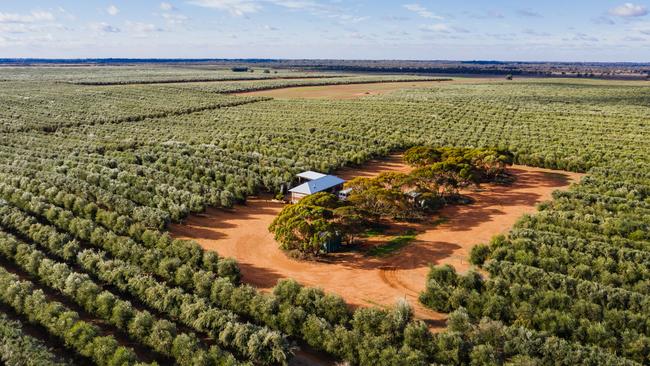
GRAPES TO OLIVES
IT WAS while working the vineyard at Renmark that his friend, fellow Marcus Oldham graduate Paul Riordan, got in touch. At the time, the South Australian Government was promoting olives as an ideal crop for Australian conditions. There was a buzz about olive oil and its proven health benefits, so the duo decided to plant a small grove of olives to see how it would go.
Riordan travelled to Israel, Italy, Greece and Spain meeting with olive oil experts and chose five varieties, none of which were available in Australia.
“We did our research then sat down together to work out what it would cost to fund the project,” McGavin says. They did 10-year monthly cashflow budgets and soon realised that if they didn’t plant at least 500 hectares, they wouldn’t stand a chance of succeeding.
“That meant we needed $15 million before we could even start. It set us back three years, but we both raised our equal shares. Family and friends invested in the project, and those shareholders are the backbone of the ownership of BBL today.”
Their first olive tree was planted in 1999 at Boundary Bend, a small town in Victoria where the Murray and Murrumbidgee rivers meet.
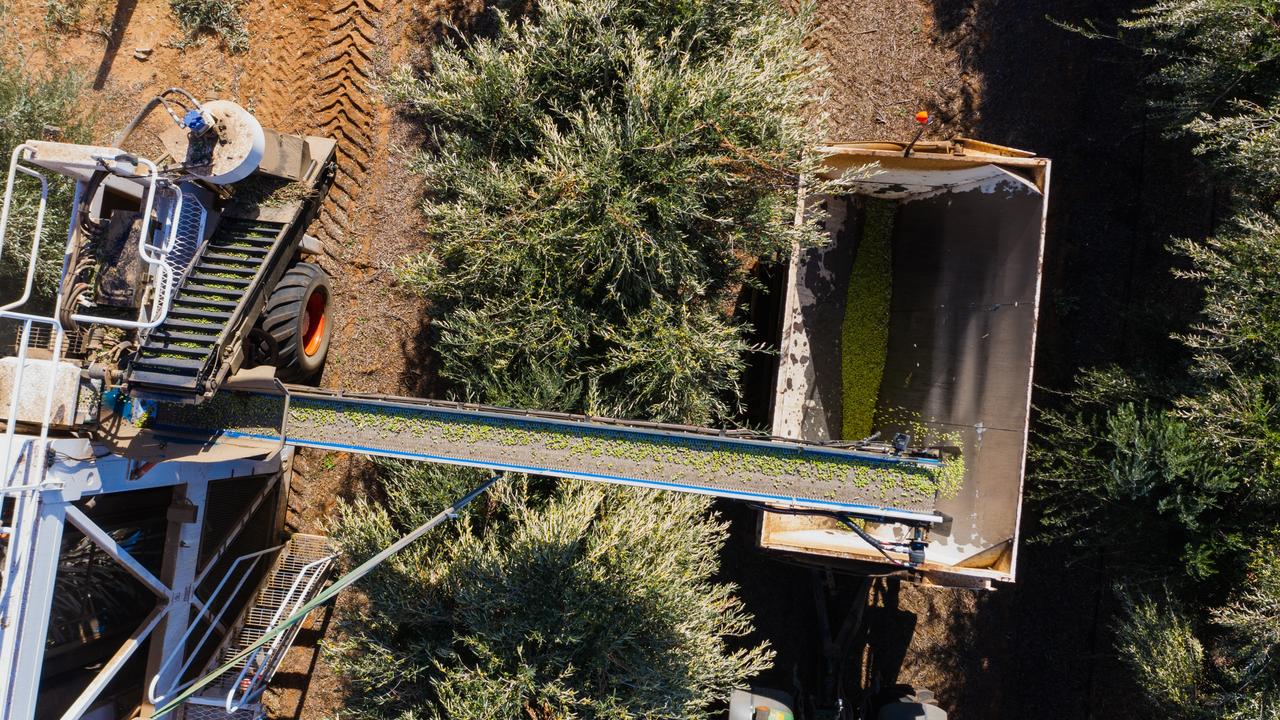
“We looked at so many properties before we bought this land because soil, climate and access to water are all such an important part of getting it right. If we hadn’t got that right, we would be broke,” he says.
By 2004 the processing plant was built and production underway. BBL was producing 25 per cent of Australia’s olive oil with just 2.5 per cent of the country’s olive trees. McGavin credits this efficiency and yield to having the right varieties, the right climate and the right management.
“We did things properly versus doing things in a mad rush, which is what a lot of other investment companies did,” he says. “Managing other people’s money can make you grow up pretty quickly. You have to report properly, budget well and be prudent. Not everything goes right, and you’ve got to be honest about that. We learnt a lot because a lot of things went wrong. In the beginning it was all trial and terror.
“Everything, from how you get more olives on a tree, the nutritional status, the water, susceptibility to frost and pests. Probably our biggest challenge was being able to harvest efficiently.”
Dad didn’t value education but he did believe in working really hard
Mechanical harvesting with trunk shakers has long been the preferred method for olive growers to reduce labour costs and is still widely used in Europe. McGavin and Riordan tried all types of harvesters before purchasing a Colossus harvester from Argentina. They now modify the Colossus harvester under licence from the manufacturer to suit local conditions.
“When we bought the Colossus, it wasn’t very reliable and it probably didn’t even do a good job, but we kept adapting it until it did,” he says. “In the early days, we were getting 75 per cent of the olives off the trees. Today it’s more like 93 per cent, and we can still make improvements.”
To produce high-quality extra virgin olive oil, fresh fruit is the key. The unique thing about Cobram Estate is that every olive is cold pressed and transformed into oil within four to six hours of being picked from the tree.
“It’s all to do with processing on site and that’s where mechanical harvesting comes in,” he says. “We never have fruit sitting around. We control the fruit, the milling and the freshness, which is why we have so much of the market share.”
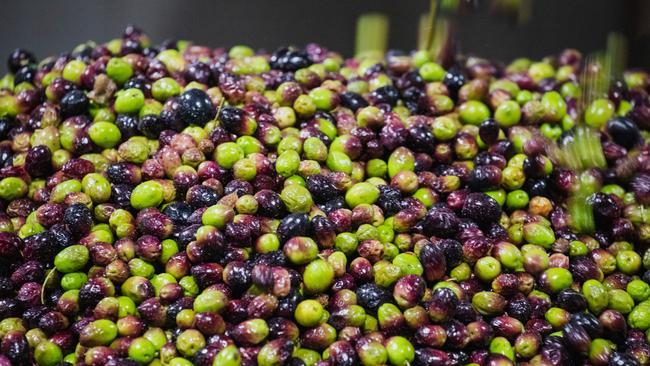
QUALITY CONTROL
THE next big challenge was how to keep the price down and still make money. “We had a really high-quality oil and the price in Italy for high-quality oil is very high,” McGavin says. “We thought if we grew similar quality, we could sell it to them, but we soon realised that the big trading houses aren’t interested in quality. They’re just blending, mixing and cheating.”
Before Cobram Estate changed the game, Australia imported more than 95 per cent of its olive oil from Europe. Less than a quarter was designated extra virgin. Today, almost all of Australia’s olive oil is of the highest-grade extra virgin olive oil, which means it is simply the fresh olive, mechanically pressed and not refined, or treated with heat or chemicals.
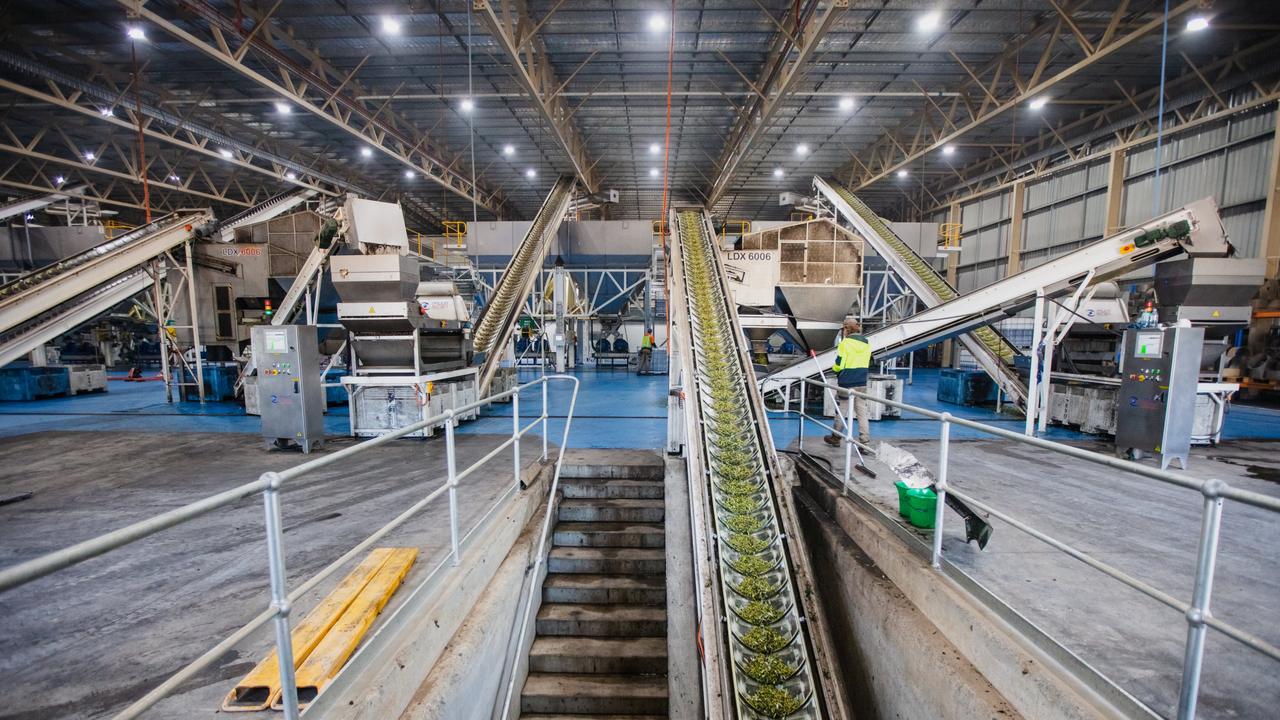
“When you crush fresh olives, you capture all the micronutrients and antioxidants which give it all its characteristics and drives the health benefits,” McGavin explains. “Only 25 per cent of the world’s olive oil production is extra virgin. In half the world’s olive oil, the fruit is so rotten that the oil is not fit for human consumption when it’s made.
“Consumers were being blatantly cheated, so a huge amount of work went into convincing the Australian Government that we needed a national standard for olive oil. Writing that standard and trying to have it enforced has been a long battle.”
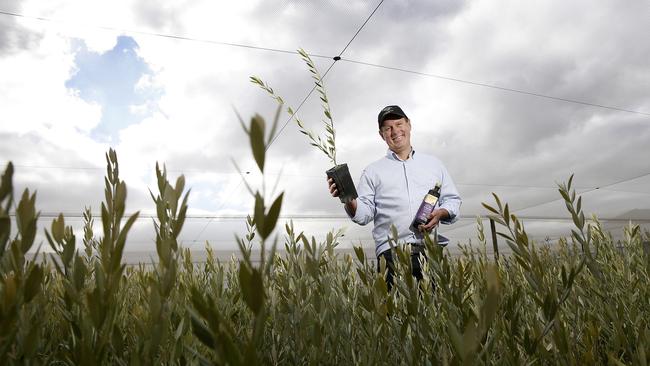
WATER AWARE
LIKE every farmer along the Murray River, McGavin is reliant on water security and price. In May, a $750 million class action was lodged in the NSW Supreme Court against the Murray-Darling Basin Authority, claiming its negligent water management has caused significant financial loss to farmers. McGavin agrees.
“To me, it’s ridiculous that non-irrigator investors can legally purchase allocation water and just horde it,” he says. “It reduces supply and drives up the price, which not only hurts irrigators, but also rural communities and ultimately consumers. It’s the laughing stock of the world.”
In California, for example, no water transfer is legal unless the water is actually being used. BBL is California’s third-largest olive oil processor.
“Our site in California only represents about 10 per cent of what we do in Australia, but it’s definitely something we want to grow.”
Another step towards future-proofing the company lies in branching into wellness products.
“We are very focused on closing the loop with waste,” McGavin says. “It’s about getting more from the tree.” Branded Wellgrove, their products include Immune Support olive leaf extract and olive leaf tea.
Having lost both parents to cancer when his father died in 2001, aged 60, McGavin is inspired by the health properties of olive trees. “Australia has a really strong olive oil industry with good codes of practice in place,” he says. “We know we have a high-quality product and we never compromise. We just need to make sure we walk the talk.”
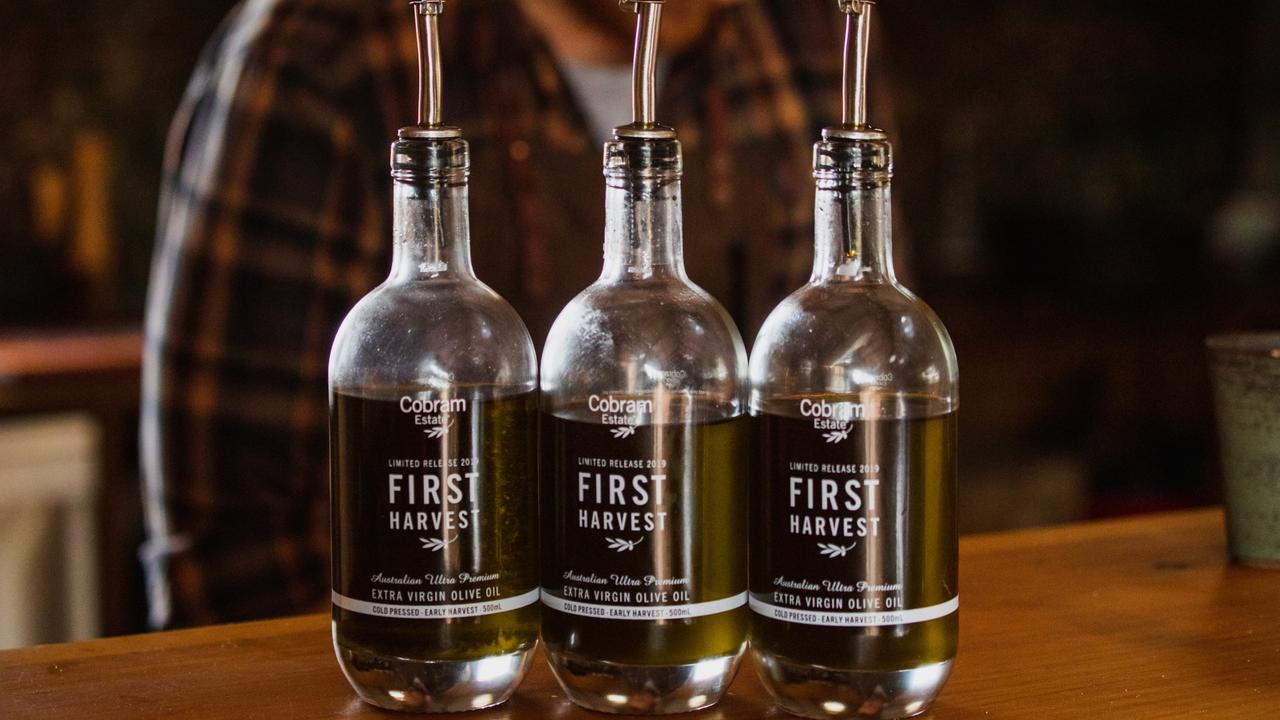
BRAND NEW BEGINNING
THE famous Cobram Estate brand was originally owned by the Dugan family, who had a small farm near the Murray River town of Cobram, Victoria, 320km upstream of Boundary Bend. They planted olives in the early 1990s and launched Cobram Estate in 1997.
It grew to become one of Australia’s leading supermarket and gourmet brands, with products stocked in more than 1500 supermarkets across Australia and exported to New Zealand, the US, Canada, China, Hong Kong and Singapore.
The Cobram Estate grove couldn’t produce the volume needed for the market so Boundary Bend became their major supplier of extra virgin olive oil. Then, in 2006, BBL bought the brand.
“It was very high quality and the Dugan family wanted us to have it because they wanted that quality to continue,” McGavin says. “Their business focus was going in a different direction and we were able to supply volume.”
When BBL bought Cobram Estate in 2006, it had annual sales of about $2.1 million. Today Cobram Estate sales total more than $80 million a year.
ROB McGAVIN’S STEPS TO SUCCESS
1 RESEARCH
“BBL has published 17 peer-reviewed research projects to solve problems as they arose”
2 PEOPLE
“We’re lucky to have incredible teams. Employing the right people is crucial to our success”
3 EVOLVE
“We are always looking for ways to improve what we do across the business”

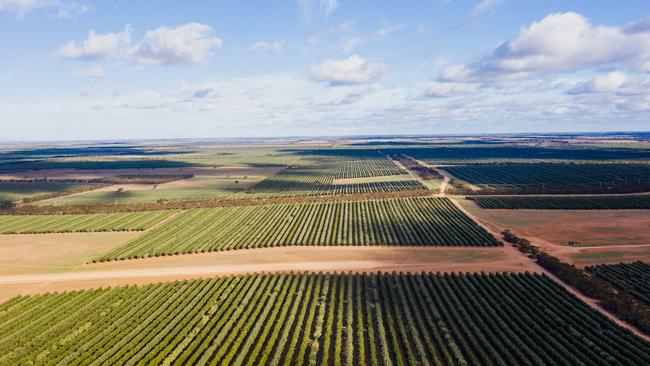
Biggest investors, landholders: Who Owns Australia’s Farms 2025
Meet the families, billionaires and investors expanding their hold on Australian farms. Discover the biggest players of 2025 and where they hail from.
Farm succession: ‘The best time to start the conversation was yesterday’
Succession in family farming businesses doesn’t always have to be stressful, and these three successful farming families are case in point.